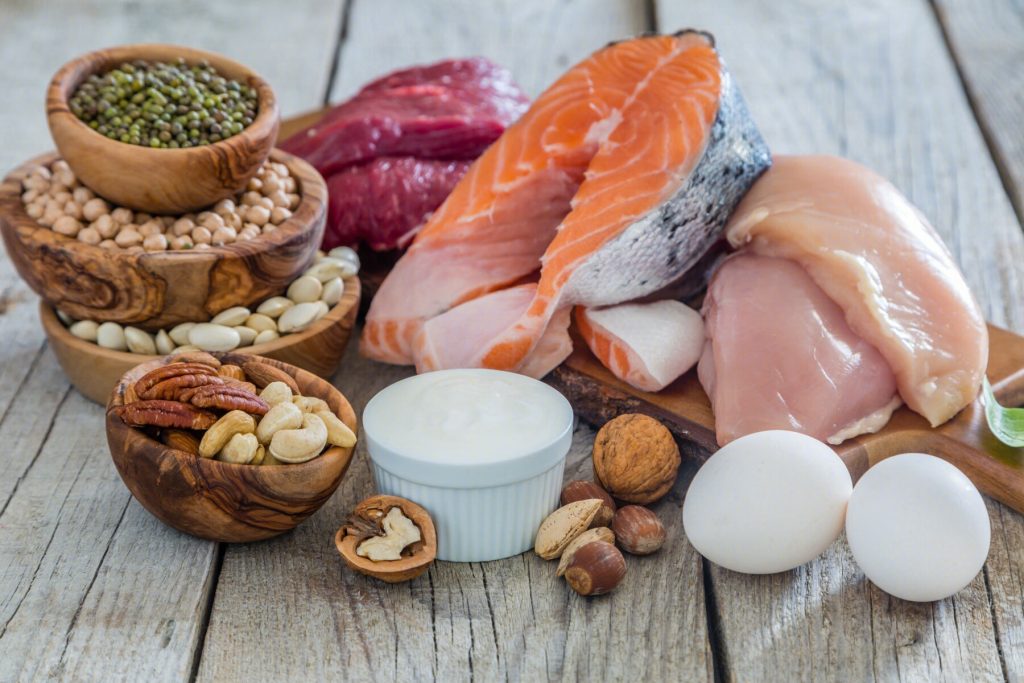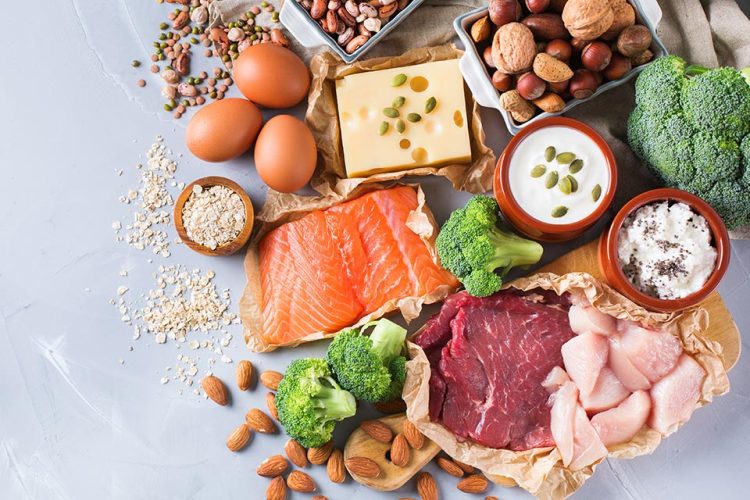Introduction
Protein is one of the most talked-about nutrients in the world of health and fitness—and for good reason. It plays a critical role in building and repairing tissues, supporting immune function, producing enzymes and hormones, and preserving lean muscle mass. From gym-goers to those simply trying to eat healthier, protein is often seen as the “must-have” nutrient.
But despite its importance, most people don’t actually know how much protein they should be consuming daily. The answer isn’t as simple as one number for everyone. It depends on factors like age, activity level, body composition goals, and even health status.
In this article, we break down what protein is, how much you really need, how your needs may differ from others’, and what can happen if you’re getting too little—or even too much.
What Is Protein and Why Is It Important?
Protein is made up of amino acids, which are the building blocks of the body. There are 20 amino acids in total, and nine of them are considered essential, meaning your body can’t produce them—you must get them from food.
Protein is vital for:
- Muscle repair and growth
- Skin, hair, and nail health
- Immune system function
- Hormone production
- Enzyme activity and metabolic processes
- Transporting nutrients throughout the body
Your body needs a consistent daily intake of protein because it does not store it in the same way it stores fat or carbohydrates.
How Much Protein Do You Actually Need?
The General Guideline (RDA)
The Recommended Dietary Allowance (RDA) for protein is:
0.8 grams per kilogram of body weight per day (g/kg/day)
or
0.36 grams per pound of body weight per day
For an average sedentary adult weighing 70 kg (154 lbs), that amounts to about 56 grams of protein per day.
But here’s the catch: this amount is only enough to prevent deficiency, not to optimize health, support active lifestyles, or preserve muscle mass as we age.
Who Needs More Protein—And Why
Your protein needs may be significantly higher than the standard RDA, depending on your lifestyle and health goals:
1. Active Individuals and Athletes
- Recommended: 1.2 – 2.0 g/kg/day
- Why: Exercise, especially strength training and endurance sports, creates microscopic muscle damage. Protein is needed to repair and rebuild those tissues. Higher intake also helps maintain lean mass while reducing body fat.
2. People Trying to Lose Weight
- Recommended: 1.6 – 2.4 g/kg/day
- Why: A higher-protein diet increases satiety, preserves muscle during caloric deficits, and can slightly increase the thermic effect of food (how many calories your body uses to digest it).
3. Older Adults (50+)
- Recommended: 1.2 – 1.5 g/kg/day
- Why: Aging is associated with muscle loss (sarcopenia). Increasing protein helps preserve strength, mobility, and metabolic health.
4. Pregnant or Breastfeeding Women
- Recommended: +25 extra grams per day above baseline
- Why: Protein supports fetal development, milk production, and maternal tissue repair.
What Happens If You Don’t Get Enough Protein?
Even if you eat a relatively “balanced” diet, it’s easy to fall short on protein—especially if you follow a vegetarian, vegan, or low-calorie diet.
Signs of low protein intake include:
- Fatigue and weakness
- Poor recovery after exercise
- Hair thinning and brittle nails
- Loss of muscle mass
- Frequent illness due to weakened immunity
- Edema (fluid retention) in severe cases
Long-term protein deficiency can lead to muscle wasting, impaired metabolism, and decreased bone health.
Can You Eat Too Much Protein?
There’s a persistent myth that high protein intake harms the kidneys or bones, but for healthy individuals, there is no scientific evidence to support this. That said, excessive protein can be problematic if:
- You have existing kidney disease
- You consistently neglect other food groups (like fiber-rich carbohydrates or healthy fats)
- You consume most of your protein from processed sources (like cured meats)
Very high protein diets (3+ g/kg/day) are unnecessary for most people and may place digestive strain on some individuals.
How to Calculate Your Personal Protein Needs
Here’s a quick way to estimate your needs based on goals:
| Goal | Recommended Protein |
|---|---|
| Sedentary adult | 0.8 g/kg (0.36 g/lb) |
| Active individual | 1.2–2.0 g/kg (0.55–0.9 g/lb) |
| Fat loss (preserve muscle) | 1.6–2.4 g/kg (0.7–1.1 g/lb) |
| Muscle gain | 1.6–2.2 g/kg (0.7–1.0 g/lb) |
| Older adult (50+) | 1.2–1.5 g/kg (0.55–0.7 g/lb) |
To convert your weight in pounds to kilograms, divide by 2.2.

Best Sources of High-Quality Protein
Animal-Based Sources (Complete Proteins):
- Chicken, turkey, beef, pork
- Eggs and egg whites
- Fish (salmon, tuna, cod)
- Dairy (Greek yogurt, cottage cheese, milk)
- Whey or casein protein powder
Plant-Based Sources:
- Lentils, beans, chickpeas
- Tofu, tempeh, edamame
- Quinoa (a complete plant protein)
- Nuts and seeds (almonds, chia, hemp)
- Plant-based protein powders (pea, rice, soy)
Note: Plant-based proteins often lack one or more essential amino acids, so variety is important.
Tips to Hit Your Protein Target Daily
- Include a protein source in every meal and snack
- Use protein shakes as convenient add-ons, not meal replacements
- Combine legumes and grains for a complete amino acid profile (e.g., rice and beans)
- Prep in advance: cook extra meat, boil eggs, or portion yogurt for grab-and-go
- Don’t fear moderate animal protein if you’re omnivorous—it’s efficient and nutrient-rich
Conclusion
Just eating “healthy” doesn’t guarantee you’re getting enough protein. In fact, many people underestimate their needs, especially if they’re active, aging, or pursuing fitness goals. Protein is not just for bodybuilders—it’s essential for everyone who wants to feel stronger, stay energized, and age well.
By understanding your personal protein needs and incorporating a variety of high-quality sources into your diet, you can fuel your body more effectively—and feel the difference in both energy and performance.
So next time you ask yourself, “Am I eating enough protein?”—you’ll have a clearer answer, and the tools to get it right.

















































